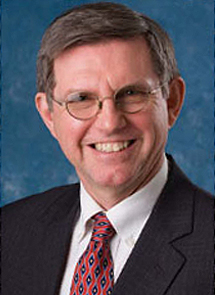HHS Issues Proposed Regulations Relating to Standards for Exchange Navigators
 By Larry Grudzien, J.D.
By Larry Grudzien, J.D.
Attorney At Law
April 2013 – On April 3, 2013, HHS issued proposed regulations that would create standards for Navigator and non-Navigator assistance personnel in Federally Facilitated Exchanges (FFEs) (including state partnership Exchanges) and for federally funded non-Navigator assistance personnel in state-based Exchanges.
These proposed regulations will clarify that any Navigator licensing, certification, or other standards prescribed by the state or Exchange must not prevent the application of the Affordable Care Act. The proposed regulations will also clarify that a Navigator cannot be an issuer of, or a subsidiary of an issuer of, stop loss insurance, and cannot receive any consideration, directly or indirectly, from an issuer of stop loss insurance in connection with the enrollment of any individuals or employees in a QHP or a non-QHP. These proposed regulations will be applicable to Navigators in all Exchanges, including Federally Facilitated Exchanges, state partnership Exchanges, and state-based Exchanges.
Second, the proposed regulations will establish conflict of interest, training, and accessibility standards applicable to Navigator and non-Navigator assistance personnel in Federally Facilitated Exchanges, including state partnership Exchanges. These standards will apply to non-Navigator assistance programs and personnel in state-based Exchanges that are funded through federal Exchange Establishment grants.
The proposed regulations provide details on the set of conflict of interest standards applicable to these Navigator and non-Navigator personnel. They will also establish that the non-Navigator assistance personnel described above must comply with the same set of conflict of interest prohibitions that apply to Navigators. There will be standards related to training, certification, and recertification for these Navigator and non-Navigator personnel. These standards include details about the requirement to be certified, to register and receive training, the content required for training, and the requirement to receive a passing score on all HHS-approved certification examinations after training. In addition, standards will be established for these Navigator and non-Navigator personnel to ensure meaningful access to their services by individuals with limited English proficiency and people with disabilities.
State-based Exchanges will not be required to use the standards proposed in regulations for their Navigators, or for non-Navigator assistance programs not funded through Exchange Establishment grants. However, HHS believes that state-based Exchanges may find the federal standards to be useful models, and could draw upon them as they develop and disseminate conflict of interest and training standards for Navigators or when establishing standards for any non-Navigator assistance program that is established by the state-based Exchange that is not funded by federal Exchange Establishment grants.
In addition, while the conflict of interest, training and meaningful access standards that are now being proposed will apply to the Navigator and non-Navigator assistance personnel described above, HHS has not proposed that the standards would also apply to certified application counselors. Certified application counselors have been proposed as an additional source of consumer assistance, required in every Exchange in separate regulations, but that rule has not yet been finalized. HHS has, however, requested public comments regarding whether all or some of the standards being proposed for Navigator and non-Navigator assistance personnel in this proposed regulation shall also apply to certified application counselors in the event that every Exchange is required to establish a certified application counselor program after publication of final regulations.
For a copy of the proposed regulations, please click on the link http://www.gpo.gov/fdsys/pkg/FR-2013-04-05/pdf/2013-07951.pdf
Larry Grudzien is an attorney practicing exclusively in the field of employee benefits. He has experience in dealing with qualified plans, health and welfare, fringe benefits and executive compensation areas. He has more than 35 years of experience in employee benefit law and is an adjunct faculty member of John Marshall Law School’s LL.M. program in employee benefits and at the Valparaiso University School of Law, where he teaches a number of courses.



Leave a Reply
Want to join the discussion?Feel free to contribute!